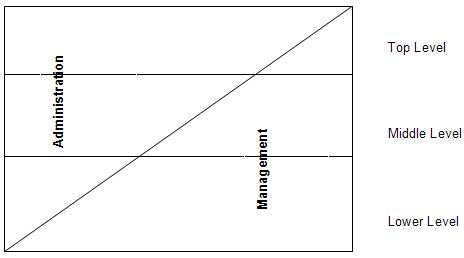Scientific Management by Taylor
April 3, 2025
 Scientific Management by Taylor
Scientific Management by Taylor
Fredrick Winslow Taylor ( March 20, 1856 – March 21, 1915) commonly known as ’Father of Scientific Management’ started his career as an operator and rose to the position of chief engineer. He conducted various experiments during this process which forms the basis of scientific management. It implies application of scientific principles for studying identifying…
 Techniques of Scientific Management
Techniques of Scientific Management
Time Study It is a technique which enables the manager to ascertain standard time taken for performing a specified job. Every job or every part of it is studied in detail. This technique is based on the study of an average worker having reasonable skill and ability. Average worker is selected and assigned the job…
 Study of Fayol and Taylor
Study of Fayol and Taylor
Both the persons have contributed to development of science of management. The contribution of these two pioneers in the field of science of management has been reviewed as “The work of Taylor Fayol was, of course, especially complementary. They both realized that problem of personnel its management at all levels is the key to individual…
According to Theo Haimann, “Administration means overall determination of policies, setting of major objectives, the identification of general purposes and laying down of broad programmes and projects”. It refers to the activities of higher level. It lays down basic principles of the enterprise. According to Newman, “Administration means guidance, leadership control of the efforts of the groups towards some common goals”.
Whereas, management involves conceiving, initiating and bringing together the various elements; coordinating, actuating, integrating the diverse organizational components while sustaining the viability of the organization towards some pre-determined goals.
In other words, it is an art of getting things done through with the people in formally organized groups.
The difference between Management and Administration can be summarized under 2 categories: -
On the Basis of Functions: -
| Basis | Management | Administration |
| Meaning | Management is an art of getting things done through others by directing their efforts towards achievement of pre-determined goals. | It is concerned with formulation of broad objectives, plans policies. |
| Nature | Management is an executing function. | Administration is a decision-making function. |
| Process | Management decides who should as it how should he dot it. | Administration decides what is to be done when it is to be done. |
| Function | Management is a doing function because managers get work done under their supervision. | Administration is a thinking function because plans policies are determined under it. |
| Skills | Technical and Human skills | Conceptual and Human skills |
| Level | Middle lower level function | Top level function |
On the Basis of Usage: -
| Basis | Management | Administration |
| Applicability | It is applicable to business concerns i.e. profit-making organization. | It is applicable to non-business concerns i.e. clubs, schools, hospitals etc. |
| Influence | The management decisions are influenced by the values, opinions, beliefs decisions of the managers. | The administration is influenced by public opinion, govt. policies, religious organizations, customs etc. |
| Status | Management constitutes the employees of the organization who are paid remuneration (in the form of salaries wages). | Administration represents owners of the enterprise who earn return on their capital invested profits in the form of dividend. |
Practically, there is no difference between management administration. Every manager is concerned with both - administrative management function and operative management function as shown in the figure. However, the managers who are higher up in the hierarchy denote more time on administrative function the lower level denote more time on directing and controlling worker’s performance i.e. management.

The Figure above clearly shows the degree of administration and management performed by the different levels of management
Your email address will not be published. Required fields are marked *